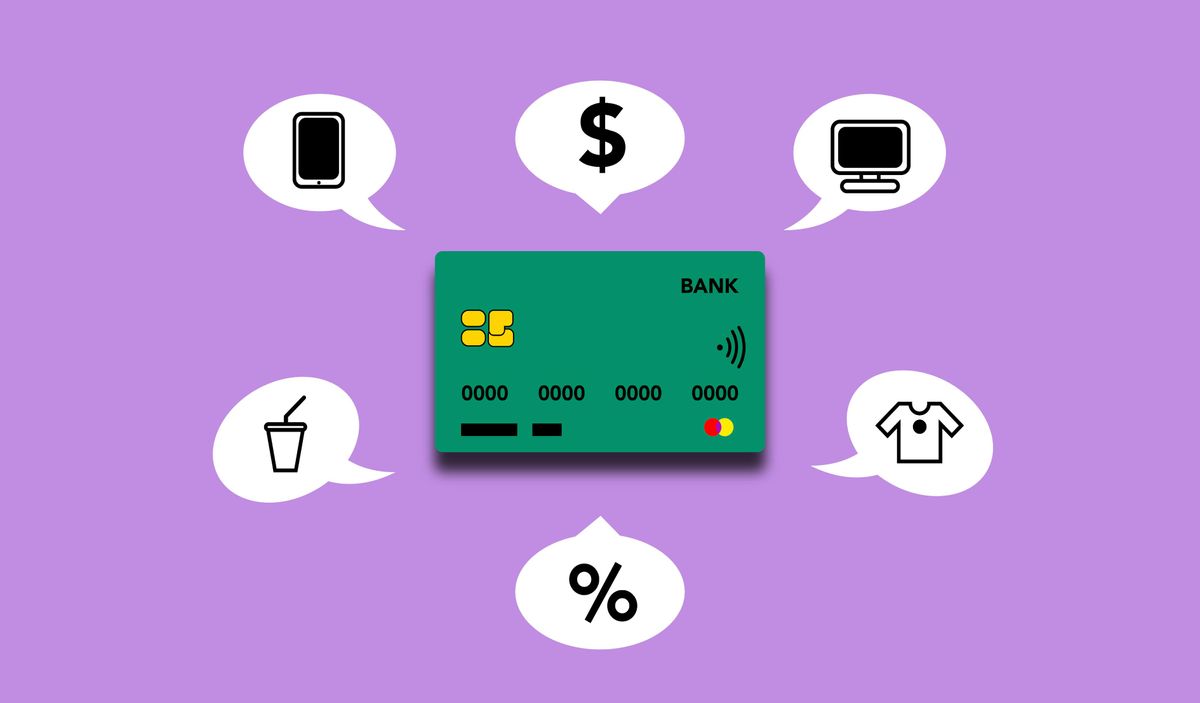In the world of IT services, securing payments from business partners in the UAE requires a comprehensive understanding of the legal framework, preventive measures, and effective recovery systems. This article delves into the intricacies of ensuring payment security, from grasping the legalities of IT service payments in the UAE to navigating the litigation process and understanding fee structures for debt recovery services. It also outlines a three-phase recovery system designed to handle unpaid IT services efficiently, helping businesses to safeguard their financial interests.
Key Takeaways
- Understanding the UAE’s legal system, including contractual obligations and jurisdictional considerations, is crucial for securing IT service payments.
- Preventive measures such as conducting due diligence, setting clear payment terms, and utilizing escrow services can mitigate payment risks.
- A structured three-phase recovery system enhances the chances of recovering unpaid IT service fees, with escalating measures from initial contact to potential litigation.
- Navigating the litigation process requires careful decision-making and an understanding of legal costs, with contingency plans for various outcomes.
- Debt recovery services in the UAE have competitive fee structures, which vary based on claim quantity, age, and whether attorney intervention is required.
Understanding the Legal Framework for IT Service Payments in the UAE
Overview of the UAE’s Legal System
In the UAE, we’re navigating a legal landscape that’s as dynamic as the IT services we provide. Understanding the legal framework is crucial for securing payments from business partners. The UAE’s legal system is grounded in Sharia law, alongside aspects of civil law, which can impact contract interpretations and enforcement.
- The legal system is a hybrid, influenced by Islamic and civil law traditions.
- Contracts are the bedrock of IT service agreements and must comply with local laws.
- Enforcement mechanisms are robust, but knowledge of the legal nuances is key.
We must ensure our contracts are ironclad, reflecting a clear understanding of the UAE’s legal intricacies.
Jurisdictional considerations are particularly important. The UAE has several free zones, each with its own regulatory framework, which can affect dispute resolution. It’s essential to identify the correct jurisdiction to avoid complications in the event of payment disputes.
Contractual Obligations and Enforcement
In the UAE, the enforcement of IT service payments hinges on a robust legal framework. Federal Law No. 18 of 1993 and the UAE Civil Code govern these transactions, ensuring that contractual obligations are not taken lightly. We must navigate these legalities with precision, aligning our contracts with local laws to avoid disputes.
Proactive strategies are essential in managing cross-border transactions. By anticipating potential issues and incorporating clear terms, we safeguard our interests and minimize risks.
When enforcement is necessary, we rely on a Three-Phase Recovery System to systematically approach unpaid services. This methodical process includes initial contact, attorney intervention, and, if needed, litigation. It’s a structured approach to secure what’s owed to us.
- Phase One: Initial contact and information gathering
- Phase Two: Legal demands through attorney intervention
- Phase Three: Litigation and decisive action
Our experience shows that understanding and utilizing these legal and procedural tools is crucial for successful payment recovery.
Jurisdictional Considerations for IT Services
When we engage with UAE business partners, understanding the jurisdictional landscape is crucial. Jurisdiction dictates where legal disputes are resolved and can significantly impact the outcome. We must consider the applicability of local laws and whether any international agreements influence the enforcement of judgments.
- Determine the governing law and jurisdiction clause in contracts.
- Assess the enforceability of judgments in the partner’s jurisdiction.
- Understand the implications of arbitration clauses.
It’s essential to preemptively address jurisdictional issues to avoid complex legal entanglements later. By doing so, we safeguard our financial interests and ensure smoother dispute resolution.
Preventive Measures to Secure Payments
Due Diligence and Creditworthiness Assessment
Before we engage in IT service contracts with UAE business partners, we must conduct rigorous due diligence. Knowing your partner’s financial health is crucial to securing payments. We assess creditworthiness through various means:
- Reviewing financial statements and credit reports
- Analyzing market reputation and past payment behaviors
- Checking references and other business relationships
This proactive approach minimizes the risk of unpaid invoices, a common challenge in cross-border IT services. By understanding the UAE’s legal framework and international agreements, we protect our interests and maintain cash flow.
Our goal is to establish a foundation of trust and transparency from the outset, ensuring a smoother payment process down the line.
Clear Payment Terms and Conditions
We understand the importance of establishing clear payment terms and conditions. It’s the cornerstone of a healthy business relationship, especially when dealing with international partners. By setting explicit expectations, we mitigate the risk of non-payment and ensure a smoother transaction process.
Transparency is key. We always advocate for detailed contracts that outline the scope of work, payment schedules, and late payment penalties. This clarity not only protects us but also provides our partners with a clear understanding of their obligations.
Here’s a quick checklist to ensure your payment terms are ironclad:
- Define the payment structure (e.g., upfront, milestones, upon completion)
- Specify currency and acceptable payment methods
- Include clear timelines for payment
- State consequences of late or missed payments
- Detail the process for dispute resolution
Remember, the goal is to prevent issues before they arise. A well-drafted agreement is your first line of defense against payment disputes.
By adhering to these practices, we address the international trade challenges and create a foundation for successful and secure business transactions.
Use of Escrow Services and Payment Milestones
When we engage with UAE business partners, securing payments is paramount. We employ escrow services to ensure that funds are held securely until predefined conditions are met. This approach mitigates risks and fosters trust between parties. Payment milestones, on the other hand, are set to align with project deliverables, providing a structured and transparent payment schedule.
Escrow accounts act as a neutral third party, safeguarding the interests of both service providers and clients. By releasing payments at agreed-upon milestones, we maintain a steady cash flow and avoid the pitfalls of late or non-payments. Here’s a quick checklist we adhere to:
- Conduct thorough due diligence on the escrow service provider.
- Define clear payment milestones in line with project phases.
- Ensure all legal agreements reflect the escrow and milestone arrangements.
- Regularly review and confirm the completion of milestones before releasing funds.
By diligently managing client payments through escrow accounts and payment guarantees, we not only secure our finances but also uphold the integrity of our business relationships. The importance of adhering to legal procedures for debt recovery cannot be overstated.
Remember, the goal is to preemptively address payment issues before they escalate. With these measures in place, we navigate the complexities of international IT service payments with confidence.
The Three-Phase Recovery System for Unpaid IT Services
Phase One: Initial Contact and Skip Tracing
We hit the ground running with persistent communication. Within 24 hours of account placement, our team dispatches the first of several letters and initiates skip-tracing to pinpoint the debtor’s financial and contact details. Our approach is methodical:
- Daily attempts to reach out via phone, email, and fax.
- Comprehensive investigation to ensure we have accurate information.
- A relentless pursuit for the first 30 to 60 days to secure a resolution.
If these efforts don’t yield results, we don’t hesitate to escalate. Our next step is clear: move to Phase Two, where our affiliated attorneys take the reins.
Practical solutions for US machinery companies in the UAE include payment risk mitigation tools. Debt recovery involves initial steps, persistent communication, and escalation to legal action if needed, using skip-tracing and investigative techniques.
Phase Two: Attorney Intervention and Demand Letters
When we escalate to Phase Two, we’re not just knocking on doors; we’re banging on them with the full force of the law. Our affiliated attorneys draft and dispatch demand letters, ensuring debtors understand the gravity of their situation. These letters serve as a final warning before more serious legal measures are taken.
- The attorney’s letterhead adds weight to our demands.
- Persistent phone calls accompany the written notices.
- We maintain a rigorous follow-up schedule to maximize impact.
If our efforts here don’t yield results, we’re prepared to take the next step. We’ll consult with you, laying out the facts and your options, empowering you to make an informed decision on how to proceed.
Remember, our goal is to secure your payment swiftly and efficiently, but if push comes to shove, we’re ready to push harder.
Phase Three: Litigation and Closure Recommendations
When we reach Phase Three, we’re at a critical juncture. Our team will present you with a clear choice: either move forward with litigation or close the case. If the odds are against us, we’ll advise to shut it down, sparing you from unnecessary expenses. You won’t owe us a dime for this counsel.
Should you choose to litigate, be prepared for the upfront costs. These typically range from $600 to $700, depending on the debtor’s location. Here’s a quick breakdown of potential fees:
- Court costs
- Filing fees
- Attorney fees
Upon your decision to proceed, our affiliated attorney will take the reins, filing a lawsuit to recover the full amount owed, including the cost of litigation itself. If we don’t succeed, the case closes, and you’re not left footing our bill.
Our fee structure is straightforward and competitive. We adjust our rates based on the number of claims and their age. Here’s a snapshot:
- 1-9 claims, under 1 year: 30%
- 1-9 claims, over 1 year: 40%
- 1-9 claims, under $1000: 50%
- 10+ claims, under 1 year: 27%
- 10+ claims, over 1 year: 35%
Remember, our goal is to secure what’s owed to you, efficiently and ethically. We’re here to guide you through each step, ensuring you’re informed and prepared for every possible outcome.
Navigating the Litigation Process
Decision Making for Legal Action
When we face unpaid IT services, we must weigh the potential for recovery against the costs involved. Navigating the litigation process in the UAE requires a careful assessment of our position. We consider the debtor’s assets, the strength of our claim, and the likelihood of a successful outcome.
Upfront legal costs are a critical factor in our decision-making process. These costs typically range from $600 to $700, depending on the jurisdiction. We must decide if the investment is justified by the potential return.
We’re committed to a cost-effective approach, ensuring that the decision to litigate is based on solid financial reasoning.
Our three-phase recovery system guides us from initial investigation to potential litigation. Here’s a quick breakdown:
- Phase One: Investigation and initial contact
- Phase Two: Attorney intervention with demand letters
- Phase Three: Litigation or case closure recommendation
The choice to proceed with legal action is ours. We must consider all variables to make an informed decision.
Understanding Upfront Legal Costs and Fees
When we decide to take legal action, understanding the upfront costs is crucial. Legal action entails court costs typically ranging from $600-$700. This initial investment aligns with our commitment to recovering payments swiftly and effectively.
Our fee structure is designed to align with the success of recovering payments. We specialize in various sectors, ensuring that our methods are tailored to each unique situation. Here’s a quick breakdown of potential upfront costs:
- Court filing fees
- Attorney retainer fees
- Administrative costs
We prioritize communication as a swift initial action to reach debtors, often avoiding the need for more costly legal steps.
Remember, these costs are an investment towards the successful recovery of your funds. We’re here to guide you through every step, ensuring that your financial interests are protected.
Outcomes of Litigation and Contingency Plans
When we navigate the litigation process, the outcomes can be as unpredictable as the desert winds. Success is never guaranteed, and we must prepare for every eventuality. Our contingency plans are our safety net, ensuring we’re not left in the lurch if the gavel doesn’t fall in our favor.
Litigation can be a double-edged sword. If we win, the debtor is typically ordered to pay the debt along with legal costs. However, victory also hinges on the debtor’s ability to pay. Should we lose, or if the debtor lacks the resources, we must absorb the legal costs and consider alternative recovery methods.
We must weigh the potential gains against the risks and costs involved. It’s a delicate balance, one that requires careful consideration and strategic planning.
Our approach is methodical, with a focus on minimizing losses. Here’s a snapshot of our fee structure for litigation:
- Upfront legal costs: $600 – $700
- Contingency fees: Based on recovery success
We stand by our clients every step of the way, from the first demand letter to the final verdict. Our goal is to secure what is owed, with minimal disruption to your business operations.
Fee Structures and Rates for Debt Recovery Services
Competitive Collection Rates and Their Determinants
In our pursuit to secure payments from UAE business partners, we understand that competitive collection rates are pivotal. Rates are tailored to the claim’s age and volume, ensuring fairness and incentivization for swift recovery. The determinants of these rates include:
- The number of claims submitted within a specific timeframe
- The age of the accounts receivable
- The total amount due on each claim
Our fee structure is transparent and designed to align with your recovery success. Here’s a quick breakdown:
| Claims Submitted | Accounts < 1 Year | Accounts > 1 Year | Accounts < $1000 | Attorney Placed |
|---|---|---|---|---|
| 1-9 | 30% | 40% | 50% | 50% |
| 10+ | 27% | 35% | 40% | 50% |
We strive to offer rates that reflect the complexity and effort involved in the debt recovery process. Our goal is to provide a cost-effective solution for our clients while maintaining the highest standards of service.
Remember, the sooner you act, the higher the likelihood of full recovery. We’re here to guide you through every step, ensuring that securing payments is a smooth and successful endeavor.
Rate Variations Based on Claim Quantity and Age
We understand that the age and quantity of claims can significantly impact the recovery rates. The older the debt, the steeper the climb; it’s a simple truth in debt recovery. But we’re equipped to handle claims of all ages with a tiered pricing strategy that reflects the effort required.
Claim quantity also plays a role. Bulk submissions can lead to reduced rates, rewarding you for consolidating your recovery efforts with us. Here’s a quick breakdown:
| Claims Quantity | Accounts < 1 Year | Accounts > 1 Year |
|---|---|---|
| 1-9 | 30% | 40% |
| 10+ | 27% | 35% |
We’re committed to an efficient recovery process, offering competitive rates for various claim volumes, safeguarding your financial interests in the complexities of UAE-US trade.
Remember, the size of the claim matters too. Smaller accounts may incur higher rates due to the proportionate effort involved. But rest assured, we’re here to guide you through the nuances and ensure a fair and effective recovery process.
Attorney Placement and Collection Success Fees
When we place your case with an attorney, the stakes are higher, but so is our commitment to recovery. We only succeed when you do; hence, our fees are contingent on the collection success. Here’s a snapshot of our fee structure:
| Claims Quantity | Accounts < 1 Year | Accounts > 1 Year | Accounts < $1000 | Attorney Placed |
|---|---|---|---|---|
| 1-9 | 30% | 40% | 50% | 50% |
| 10+ | 27% | 35% | 40% | 50% |
Our rates are competitive, designed to encourage swift action and maximize recovery. Remember, no recovery means no fees to us or the affiliated attorney.
We navigate the complexities of debt recovery with a clear focus on results. Our phased approach ensures that every step, from initial contact to potential litigation, is handled with precision and your best interests at heart.
Navigating the complexities of debt recovery can be challenging, but with Debt Collectors International, you’re assured of a seamless and effective process. Our tailored solutions cater to various industries, ensuring that your specific needs are met with expertise. Whether you’re interested in flat fee collections, skip tracing, or litigation support, our experienced team is ready to assist you. Don’t let unpaid debts disrupt your business—visit our website to explore our fee structures and rates, and take the first step towards reclaiming what’s yours. Act now and secure your financial peace of mind.
Frequently Asked Questions
What are the typical upfront legal costs for litigation in the UAE?
Upfront legal costs such as court costs and filing fees can range from $600.00 to $700.00, depending on the debtor’s jurisdiction.
What happens if litigation attempts to recover unpaid IT services fail?
If attempts to collect via litigation fail, the case will be closed, and you will owe nothing to the firm or the affiliated attorney.
What are the collection rates for IT service payments in the UAE?
Collection rates vary based on the number of claims and their age. For example, for 1-9 claims, accounts under 1 year in age are charged 30%, and accounts over 1 year are charged 40% of the amount collected.
What is involved in Phase One of the Three-Phase Recovery System?
Phase One includes sending letters, skip-tracing, and making daily attempts to contact the debtor using various communication methods for the first 30 to 60 days.
How does attorney intervention work in Phase Two of the recovery process?
In Phase Two, an affiliated attorney will draft demand letters and attempt to contact the debtor via telephone to resolve the debt.
What options are available if a recommendation is made to close the case in Phase Three?
If closure is recommended due to low recovery likelihood, you can withdraw the claim with no obligation to pay the firm or attorney, or you can allow the firm to continue standard collection activities.





